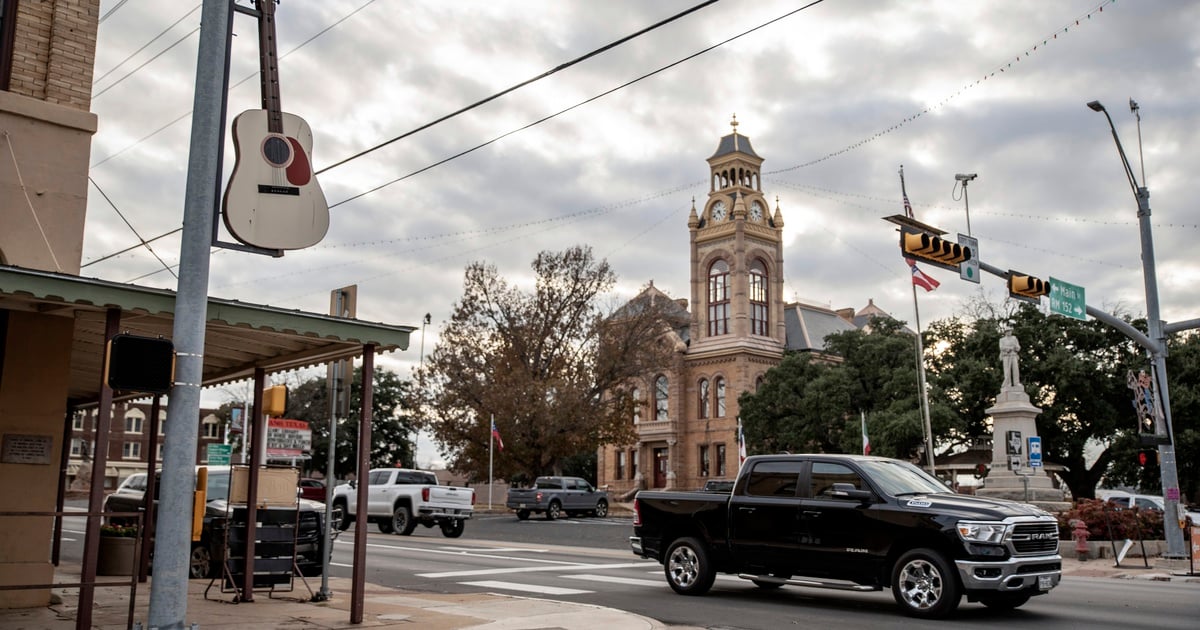Even in conservative corners of Texas, efforts to crack down on abortion travel are meeting resistance with some local officials who support Texas’s strict abortion laws, expressing concern that the efforts go too far.
LLANO, Texas — No one could remember the last time so many people packed into City Hall.
As the meeting began on a late August evening, residents spilled out into the hallway, the brim of one cowboy hat kissing the next, each person jostling for a look at the five city council members who would decide whether to make Llano the third city in Texas to outlaw what some antiabortion activists call “abortion trafficking.”
For well over an hour, the people of Llano — a town of about 3,400 deep in Texas Hill Country — approached the podium to speak out against abortion. While the procedure was now illegal across Texas, people were still driving women on Llano roads to reach abortion clinics in other states, the residents had been told. They said their city had a responsibility to “fight the murders.”
The cheers after each speech grew louder as the crowd readied for the vote. Then one woman on the council spoke up.
“I feel like there’s a lot more to discuss about this,” said Laura Almond, a staunch conservative who owns a consignment shop in the middle of town. “I have a ton of questions.”
More than a year after Roe v. Wade was overturned, many conservatives have grown frustrated by the number of people able to circumvent antiabortion laws — with some advocates grasping for even stricter measures they hope will fully eradicate abortion nationwide.
…



Do Federal dollars help build these roads? (I don’t know.)
If they are US routes or interstates then yes. If they are state or county/township roads than probably not. Though if I recall correctly if a local road has an over/underpass of an interstate federal funds could be used to help maintain or rebuild those bridges. That part I’m fuzzy on though so could be wrong.
That is really informative. Thank you!